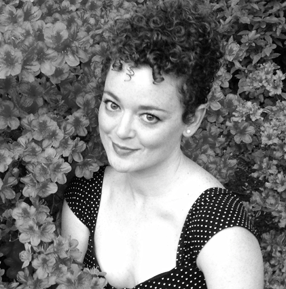Autobiography of Eve
Wearing nothing but snakeskin
boots, I blazed a footpath, the first
radical road out of that old kingdom
toward a new unknown.
When I came to those great flaming gates
of burning gold,
I stood alone in terror at the threshold
between Paradise and Earth.
There I heard a mysterious echo:
my own voice
singing to me from across the forbidden
side. I shook awake—
at once alive in a blaze of green fire.
Let it be known: I did not fall from grace.
I leapt
to freedom.
Copyright © 2015 by Ansel Elkins. Used with permission of the author.
“In the summer of 2012, while following the trial of the band Pussy Riot, reading the plays of Mae West, and watching pre-Code movies filled with unrepressed seductresses like Marlene Dietrich and Clara Bow, I began writing ‘Autobiography of Eve,’ an ode to sex, desire, rebellion, and so-called fallen women. But the poem, draft after draft, eluded me until last July when, as I worked on it feverishly in a New York hotel, it occurred to me that the moment I was writing toward was not Mae West’s, it was Eve’s. I dismantled the poem and recast the lines dozens of different ways, playing with varieties of syntax and sound in an effort to locate the pulse of this pivotal moment between good girl and bad girl—a moment like Eve’s soliloquy in Book 9 of Paradise Lost as she stands before the tree of knowledge and speaks the word freedom for the first time—the moment where desire becomes transgression. I realized that Eve’s radical act of rebellion lay in her imagination, a fantasy of herself.”
—Ansel Elkins

